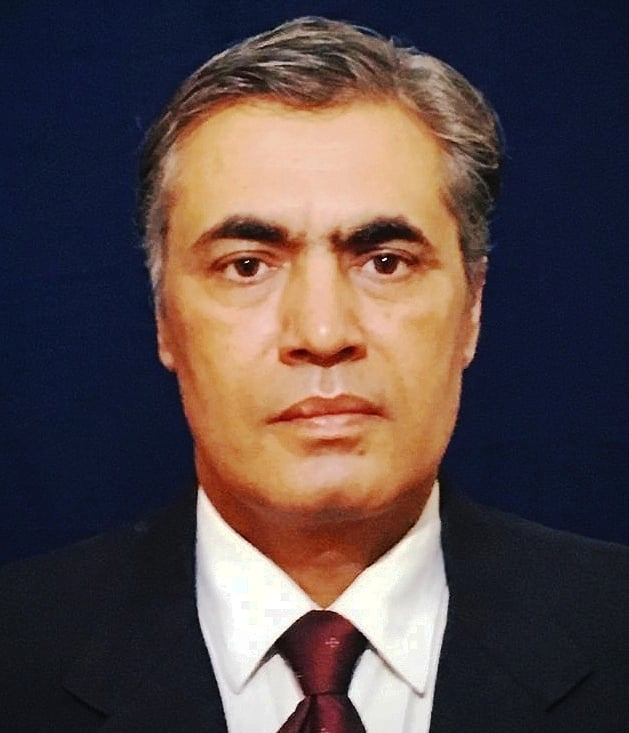
Govt borrowing surges 228% in 7 months of FY23
KARACHI: The government borrowing for the budget financing has surged 228 per cent during the first seven months (July-January) of the fiscal year 2022/23, according to the official data released by the State Bank of Pakistan.
The government borrowed Rs1.75 trillion from the commercial banks during the first seven months of the current fiscal year, compared with Rs532 billion in the same period of the last fiscal year.
The surge in the borrowing may be attributed to widening of the fiscal deficit due to a decline in the revenue collection and a rise in government expenditures.
The fiscal balance in the first half (July-December) of the fiscal year 2022.23 posted a deficit of Rs1.683 trillion, 23 per cent YoY higher than the prior year’s deficit.
In terms of percentage of GDP, the deficit arrived at 2 per cent in the half year, same as the last year’s corresponding period figure, according to the data released by the Finance Ministry.
However, the primary balance during the first half of the current fiscal year posted a surplus of Rs890 billion (1.1 per cent of GDP), compared to a surplus balance in the primary account of Rs81 billion witnessed in the same period of the last fiscal year (0.1 per cent of GDP).
Primarily, the total revenue registered a growth of 19 per cent during the period under review to reach Rs4.7 trillion, compared with Rs3.96 trillion in the same period of the last fiscal year, which aided the fiscal balance.
Although the revenue collection increased on a year-on-year basis, the tax-to-GDP ratio fell to 5.6 per cent during the first half of the current fiscal year, compared with 5.9 per cent in the same period of the last fiscal year.
The total tax revenue collection went up 17 per cent YoY to Rs3.7 trillion. The Federal Board of Revenue (FBR) taxes clocked-in at Rs3.4 trillion during the period, 17 per cent YoY higher than the first half of the last fiscal year’s collection of Rs2.9 trillion.
The revenue collection in indirect taxes remained flat during the first half of the current fiscal year from the last year’s Rs1.9 trillion. This was mainly on the back of flat growth in the sales tax, which clocked-in at Rs1.272 trillion and 3 per cent YoY decline in the Customs duty to Rs467 billion.
Besides, direct taxes jumped up 50 per cent YoY to Rs1.526 trillion, mainly contributing to the overall revenue collection.
Albeit, the government collected Rs967 billion in non-tax revenues, displaying a jump of 26 per cent YoY. This was particularly owed to higher collection of the petroleum development levy of Rs177 billion, marking an increase of 154 per cent YoY.
Moreover, the dividend collection also improved 57 per cent YoY to Rs41 billion. On the contrary, the surplus profit of the SBP remained absent, amid the amendments in the SBP Act 1956, according to analysts at Arif Habib Limited.
In addition, the total expenditures went up 20 per cent YoY to Rs6.4 trillion. Further breakup revealed that the current expenditures underwent an uptick of 30 per cent YoY, of which defence rose 23 per cent YoY. However, the markup payments marked a growth of 77 per cent YoY to Rs2.573 trillion.
Moreover, the development expenditures and net lending undertaken by the government decreased 11 per cent YoY to Rs637 billion.
The total expenditures under the Public Sector Development Programme (PSDP) during the first half of the current fiscal year arrived at Rs591 billion (up 5 per cent YoY) with the provincial expenditures at Rs454 billion (up 24 per cent YoY), outdoing the federal disbursement of Rs136 billion (down 32 per cent YoY).
The government borrows from the commercial banks through the sale of market treasury bills (MTBs) and Pakistan Investment Bonds (PIBs).
The official data revealed that the outstanding stock of government borrowing from the commercial banks sharply increased.
The SBP data showed that the balance stock increased 18 per cent to Rs6.85 trillion by the end of November 2023, compared with Rs5.8 trillion a year ago.
Analysts believe that the domestic borrowing was ringing alarming bells for the already deteriorated economy of the country. The constant increase in the key policy rate had massively increased the cost of borrowing, they added.
However, the higher borrowing by the government would show a significant jump in the earnings of the banks. The primary earning of the banking system is interest income, which would grow substantially when the annual report ending December 31, 2022 would be published.
The first half (January-June) of 2022 showed the pre-tax-profit of the banking system recorded healthy YoY growth of 38 per cent to Rs300 billion from Rs217 billion in the first half of 2021, the SBP data showed.
However, under the Finance Act 2022, tax incidence for banks has significantly increased due to the hike in the corporate tax rate, super tax and enhancement in the special tax on earnings on government papers. Resultantly, the after-tax-profit grew 2.7 per cent to Rs126 billion in the first half of CY22, compared with Rs123 billion in the corresponding period of CY21.
The SBP also revealed that given the substantial share of the government papers in banks’ earning assets and interest income, the advances-to-deposit ratio (ADR) explains the major differences in taxation among the banks, i.e., higher ADR is associated with relatively lower tax rate on income from the government papers.
Detailed analysis shows that most of the banks have higher than 50 per cent ADR at the end of June 2022. These banks were mainly small- to medium-sized and also include Islamic banks, which typically have high financing to deposit ratios, it added.
Catch all the Economic Pulse News, Breaking News Event and Latest News Updates on The BOL News
Download The BOL News App to get the Daily News Update & Live News.








 Read the complete story text.
Read the complete story text. Listen to audio of the story.
Listen to audio of the story.